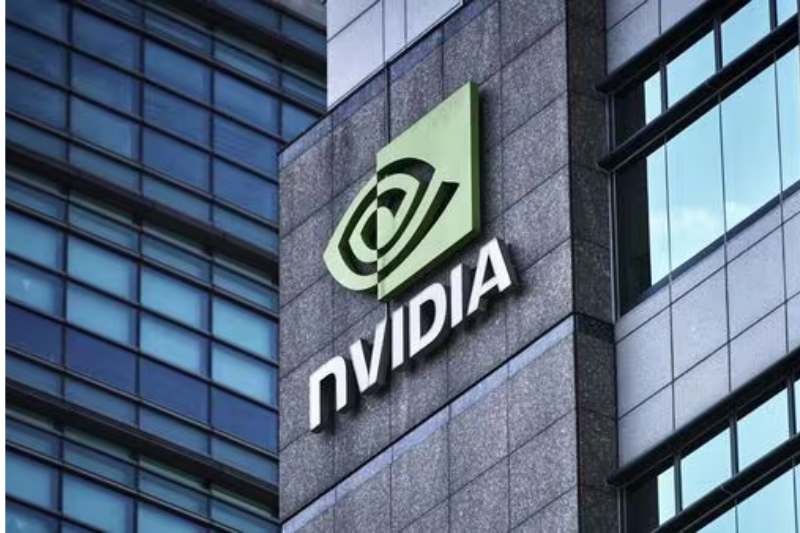
July 10, 2025 | Financial Markets | By Staff Reporter
Nvidia Corporation (NASDAQ: NVDA) has officially become the first company in history to reach a $4 trillion market valuation, a milestone that cements its dominance in the global AI and semiconductor sectors. On Wednesday, shares of Nvidia surged over 2.8%, closing at $162.88, with intraday highs peaking above $164.40.
This record-setting performance not only outpaced Apple and Microsoft but also signals a seismic shift in investor confidence toward AI-focused firms.
The company’s meteoric rise is largely attributed to its leadership in AI chips and data center hardware. Its latest Blackwell architecture, designed for generative AI workloads, has positioned Nvidia as the go-to supplier for cloud giants and sovereign AI projects worldwide.
According to Wedbush Securities, Nvidia is on a “clear path to $5 trillion valuation” as global demand for AI infrastructure intensifies. The firm raised its 12-month price target to $205 per share.
Meanwhile, Citigroup also revised its price target from $180 to $190, citing unprecedented demand for sovereign AI capabilities—a market where Nvidia holds a clear advantage.
Nvidia’s rise has significantly boosted the personal wealth of CEO Jensen Huang, who now ranks among the world’s top 10 richest individuals. His net worth is estimated at $142 billion, fueled by the AI rally and Nvidia's strategic product launches.
Despite the optimism, Huang and other executives reportedly sold over $1 billion in shares in the past two months, including $500 million in June alone. Analysts suggest this could be routine profit-taking amid historic highs, but it has stirred some caution among long-term investors.
For retail and institutional investors, Nvidia's stock presents both opportunity and risk. While growth prospects remain robust—especially with the rollout of next-gen chips and expansion into international markets—valuation concerns persist.
At current levels, Nvidia is trading at 34× forward earnings, a premium compared to peers in the tech sector. Still, analysts argue that its earnings growth justifies the valuation, at least in the short term.
NVDA has already gained over 950% since early 2023, becoming the centerpiece of the AI-driven market boom.
Despite stellar performance, some headwinds remain. New U.S. export controls, particularly on advanced chips destined for China and Southeast Asia, have raised concerns. Huang has previously stated that such restrictions could impact up to $15 billion in potential revenue.
In response, Nvidia is reportedly preparing a China-specific AI chip based on its Blackwell design, aimed at complying with U.S. export regulations while maintaining its Asian market presence.
Nvidia’s next earnings report, scheduled for August 2025, will be a key moment for investors to evaluate whether growth is keeping pace with valuation.
As AI demand continues to rise, and new chip generations like Rubin (2026) and Feynman (2028) enter development, Nvidia appears well-positioned to remain at the forefront of technological innovation.
Whether the stock pushes toward the $200 mark—or corrects after a parabolic rise—will depend on macroeconomic conditions, regulatory developments, and Nvidia’s ability to sustain its lead.